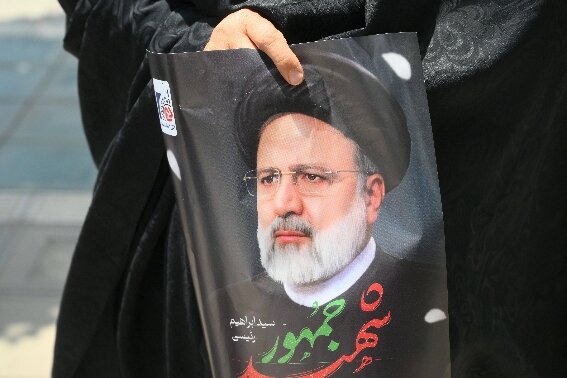Sayed Raisi’s death was a reflection of how he lived

BEIRUT - Sayed Ibrahim Raisi and his companions were killed whilst on active duty – a reflection of how they lived their lives.
The president displayed strong energies throughout his life and was not sitting behind closed doors, rather he was in a constant state of service. The million-man gatherings in many cities across Iran for his funeral service is also a testament to the reverence this man had in the hearts of the masses.
Sayed Raisi was active since the beginning of his youth, which coincided with the revolution. His ascension to presidency did not come out of nothing; it was built on a history of struggle, through which he won the trust of the masses and the Leader too.
Of the most important attributes he displayed was loyalty to his faith and the country, with sincerity in the tasks he carried out, dedication to serving the people. He was firm in his principles yet flexible in dealing with those around him. Sayed Raisi was a man of getting things done and would seek all the possibilities, whilst displaying ambition.
Sayed Raisi’s active energies were coupled with a vision that was favorable, creative, and authentic, such as Iran relying on itself and not receiving support from the outside. The internal policies of his presidency focused on fighting corruption, revitalizing the internal
economy through improving income and job creation, fighting poverty and investment in infrastructure, such as water, electricity, health, and education.
Iran’s foreign policy under Sayed Raisi prioritized strengthening the resistance axis as part of confronting the American hegemony. This included the development of more sophisticated weapons at wider ranges, such that they could be renewed in the event of long-term battles.
Iran has worked to guarantee its national security, through strengthening and expanding its defense systems.
For the first time, coordination and unity of the resistance axis fronts materialized under Sayed Raisi’s presidency. This is to the extent that America is avoiding escalation and a regional war, due to the difficulty in confronting the resistance axis. Every arena of the resistance axis has operated independently yet come to each other’s defense, whilst safeguarding the higher interests. Sayed Raisi’s insight was demonstrated in the strategy of reducing regional tension and international escalation, through not getting dragged into an expanded war of destruction. Despite this, Iran still dealt a decisive slap towards the Israeli occupation entity on April 13th.
Sayed Raisi’s vision to solve the regional problems was based on dialogue. Iran has shown it has an open hand policy towards all countries of the world, excluding the Israeli occupation entity and America, if the latter continues its arrogant course. Strategic regional cooperation
within common interests was enhanced under Sayed Raisi. This included regional security agreements such as the reproachment with Saudi Arabia, aimed at reducing tensions and enhancing stability, whilst weakening external pressures. Iran under Sayed Raisi saw a strengthened relationship with neighboring countries such as Pakistan and Turkey, despite the differing politics.
Through the policy of reducing tension and promoting dialogue within common interests that require international cooperation, Iran sought to keep in check the groups that the West has established in the neighboring countries. These groups commit sabotage acts in Iran, operating from northern Iraq, Pakistan, Azerbaijan, Turkey, and Daesh in Syria and Iraq under American auspices. Under Sayed Raisi, Iran responded
quickly and firmly against the Western-linked security threats and its tools, such as striking the Mossad base in Erbil and the Jaish-ul-Adl group in Pakistan’s Baluchistan province, early this year.
Iran formally joined BRICs and the Shanghai Cooperation Organization under Sayed Raisi’s presidency, expanding its engagement in international organizations that would help form parallel systems to the Western hegemonic organizations. Iran seeks to cooperate with all countries of the world seeking liberation from Western domination in South America, such as Venezuela and Colombia which saw strengthened relations with Iran. In addition, Iran seeks to help countries under Western pressure, particularly countries in Africa such as Eritrea, with all these efforts contributing to ending the unipolar world system.
Leave a Comment